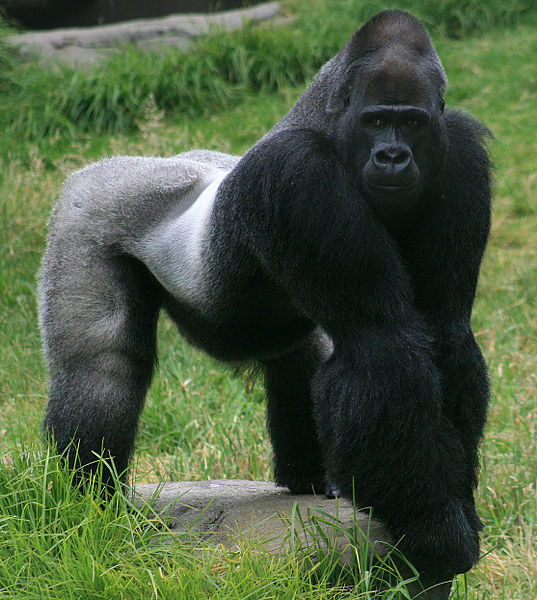
When will human beings be humane?
In yet another example why we should not hold animals in captivity, an endangered gorilla is dead, a little boy almost lost his life and millions are horrified.
For what?
Well, for human entertainment and profit.
This past weekend, The Cincinnati Zoo shot and killed an endangered western lowland gorilla, due to a 4-year-old boy slipping through the animal’s enclosure. The gorilla, named Harambe by the zoo, had turned 17 years old the day before the incident that took his life.
Innocent animals being killed as a result of consequences of their captivity is not unusual. One need only do a quick search online to find dozens upon dozens of documented cases of animals being murdered because they hurt or threatened to hurt humans as a result of their captivity.
This weekend’s event is garnering much attention, but not to the same degree as the tragic events of 2010, when it was a human life that was lost as a result of the practice of animal captivity.
At that time, Sea World came under fire when one of their beloved trainers was brutally killed by Tilikum, a killer whale and star of Sea World’s “Shamu” show. The tragic events of that day are the subject of the acclaimed documentary film Blackfish and contributed to an increased awareness among the general public of the controversial issue of wild animals in captivity. Mounting pressure and an 84% decrease in ticket sales led to the recent announcement by Sea World that they would stop breeding killer whales immediately and phase out theatrical orca shows.
Many animal activists see this as progress, and yet, with an estimated 750,000 animals being held in captivity in accredited zoos alone, there is much more work to be done.
Like many people, I used to believe that endangered animals were offered protection by being held captive in zoos. As I have become more educated, I have learned that although there are some exceptions, zoos do little to preserve or protect animals. According to PETA “Most animals confined in zoos are not endangered, nor are they being prepared for release into natural habitats.” The organization points to a 2015 study published in the Journal of Applied Ecology which concluded that unless animals in the wild are protected, captive breeding won’t make a difference.
Zoos breed animals for one reason—profit. In the United States alone it is estimated that revenues from zoos and aquariums tops five billion dollars annually. Baby animals in particular drive sales, as families enjoy bringing their children to see the adorable little animals.
However, rather than teaching children to appreciate the natural world, zoos perpetuate the idea that the animal kingdom is subject to the domination of man and that it is okay to keep them enslaved for our entertainment. Never mind that the animals have been taken from their families, are lonely and cannot live in the manner in which they were born to live.
No, it seems none of that can compare with the look on the little human’s face when he sees the baby lion cub—that is until he falls into the den and the lioness has to be shot to save him.
Thanks to the size of our brains and our firearms, man indeed does dominate the animal kingdom. Take the guns away however and it’s a completely different story. We are simply another animal, although self-described as more “intelligent.” According to Charles Darwin, what separates man from beast is a slightly higher intelligence and our ability to contemplate things beyond what we can sense: in a word, mindfulness.
To be mindful is to be intentional; to think about the choices we are making, to weigh the cost and benefits of all we do and to consider the impact of our actions on others. In consideration of this, keeping animals captive for entertainment and profit is wrong. There is no benefit to humankind, aside for titillation and folly.
To subject another creature to a lifetime of confinement is—inhumane.
For those who would like to help make a difference in the lives of animals, PETA recommends the following organizations which provide sanctuary, rescue and the preservation of habitats:
International Primate Protection League
Performing Animal Welfare Society
Relephant Read:
Jailbird: Why I Will Forever Boycott Zoos.
Author: Roseann Pascale
Editor: Nicole Cameron
Image: Brocken Inaglory/Wikimedia commons


 Share on bsky
Share on bsky




Read 0 comments and reply